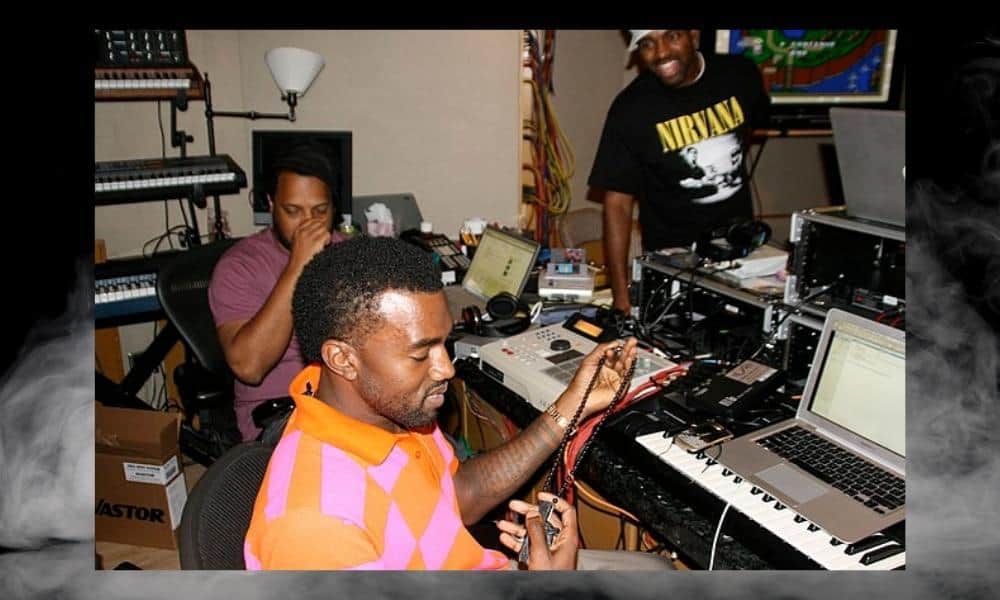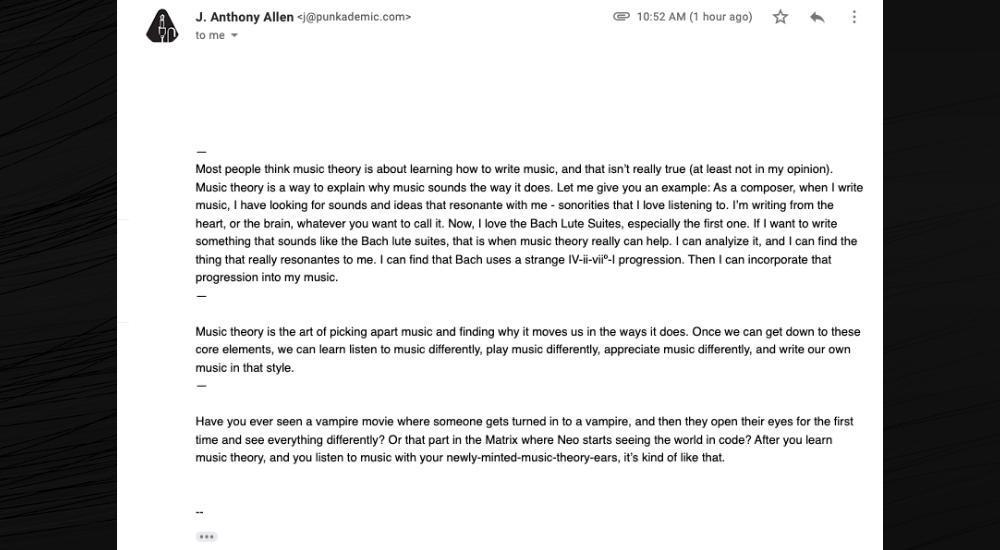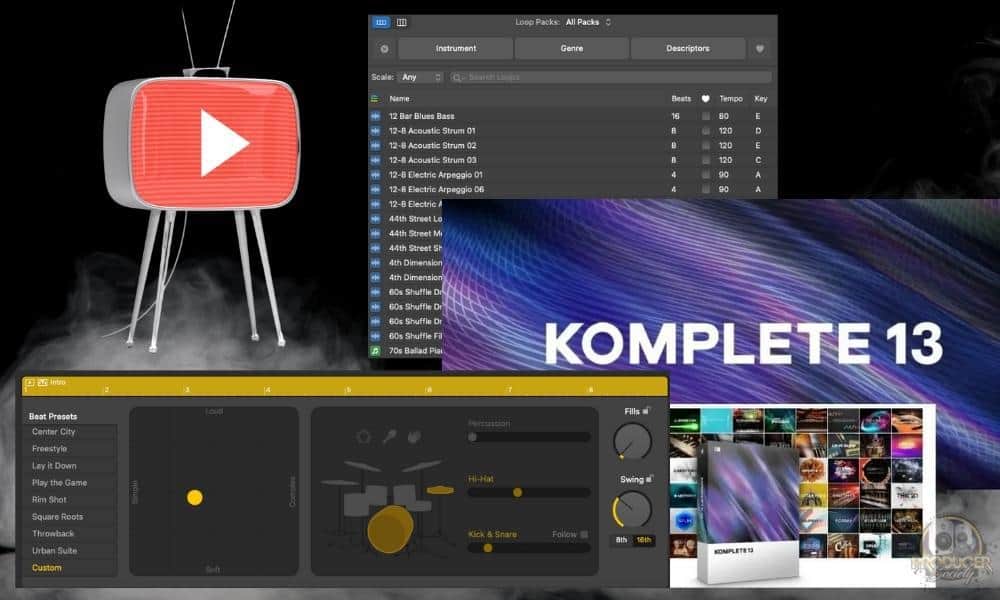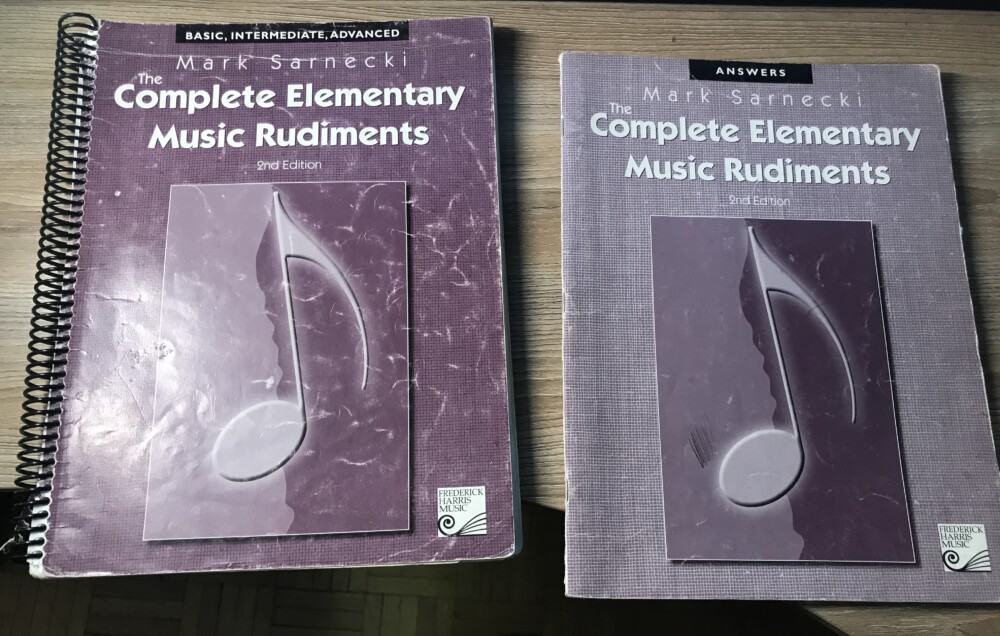Michael Jackson, Prince, and Kanye West: what do these artists have in common? Besides being immortalized as legends in music – none of them have received formal training in music theory. The good news is that you don’t need to learn music theory to become great either.
That said, there is a lot more to say about this topic. Some of the greatest musical artists maybe didn’t fully understand what they were doing when they created it, but knew, intuitively, that it sounded good. They just weren’t able to explain precisely how and why it sounded the way that it did. I’ll put it to you in simple terms before we move on.
You don’t need music theory to be able to write or perform great music, although, it will help a lot. Western music theory is a collection of theories and a framework for understanding and explaining how musical elements connect. Being familiar with this system will help, but you don’t need it.
Of course, music theory can play a valuable role in your development, but what’s arguably more important than theory in your early days of making music, are the fundamentals of practice, curiosity, and commitment.
6 Reasons You Don’t Need Music Theory to Make Beats
1) Music Production Can Be Learned Through Trial and Error
Scores of artists have navigated their way through music by exploration and practice. Eric Clapton famously recounted an event when he was nervous to perform alongside the great Aretha Franklin because everyone had sheet music in front of them that he couldn’t read.
Kanye West showed an early commitment to his craft. Allegedly, Kanye spent a lot of this time in his teenage years producing multiple beats per day to hone his skills.
A few decades and a few Grammies later, Kanye West is still not known to have had formal music theory training. These days, Kanye is known for being one of the most innovative artists ever – and not just in music.

Learning through trial and error takes the spirit of persistence. A willingness to fail and struggle through what might sound terrible, before getting to what sounds good. But it is ultimately possible to learn the fundamentals of music through trial and error and having a good ear.
I saw a great video of Rick Beato recently where he talked about Kurt Cobain’s intuitive ability as a great songwriter, despite not knowing what he was doing in formal terms.
In his “What Makes This Song Great” series, Rick used the example of “Heart-Shaped Box” to show how Kurt used a Lydian-sounding triad without even knowing it (allegedly).
Part of what makes someone “naturally” good at something – and I use that term with quotation marks because it still takes crazy practice – is the ability to hear when something sounds good during the creative process.
For instance, some people are just great dancers because they understand basic timing and tempo, ie, 1-2-3-4, 1-2-3-4, while others just flail their bodies around in a way that’s out of sync with the pulse of the music.
Everyone can be taught, but some people just seem to get that simple concept right from the start. Maybe it’s genetics, culture, or environment – I don’t know. I’m not here to say.
2) Music Theory is A Tool For Analysis, Communication, And Creation

One area where it comes in handy to have some knowledge of music theory is when collaborating with other artists. Much like any language, music theory is a tool to communicate with other musicians using common terms.
In the quote I provided above, J. Anthony Allen said that theory is a tool for analysis and a way of figuring out why music “sounds the way that it does.” Having this knowledge will help you incorporate themes into your own music, but it’ll also help you jam with other musicians.
Knowing what an ii-V-I progression is in the Key of Bb Major will help you a lot when someone says they’re going to start jamming over it. Even just knowing chord names and what key they belong to will help.
I’d recommend getting an All-Access Pass to Punkademic’s Music Theory course (use the coupon code “producersociety” for 20% off) to get started if you want to learn. Here’s my video discussion of the course:
That all said, there are ways to describe something to people without being familiar with this terminology. Not knowing music theory doesn’t preclude you from being able to communicate the ideas that you might have.
One way is to simply use an instrument to play what’s in your head or to describe it using sounds and words. There are popular recordings of Michael Jackson using his voice and beatboxing to describe the production that he wanted on the songs he wrote – such as at the beginning of his song “(I Like) The Way You Love Me”.
I think having the musical toolbox of terminology and understanding will certainly help you, but you don’t necessarily need it to be successful.
3) There Are Limitations to What Can Be Communicated Using Music Theory

Sending a vocalist a set of lyrics notated in sheet music is one way to describe what you’d like them to sing. This doesn’t necessarily give them the full picture of the exact execution that is required on the piece, though.
Say, for example, you’d like them to use a more hoarse or raspy tone on a certain part of the song. Or perhaps you’d like to emphasize the exact type of phrasing that you want.
Well, music theory has limitations in its ability to communicate that. Clearly, given the above example, there is a place for a different type of communication in music – one that can’t be read or notated.
4) Online Tutorials and DAWs Make Music Creation Much Easier and More Accessible

In the information age, everything that an aspiring producer needs to get started with making beats can be accessed online. For instance, I have a beat-making tutorial here as well as a songwriting tips article.
Both of these articles have a ton of information in them about how to get started with a free DAW like GarageBand. If you don’t have a macOS or iOS device, you could always get FL Studio instead.
Additionally, If you want to learn the fundamentals of the piano to inform your beat-making skills on the MIDI keyboard, PianoForAll is a great and inexpensive choice for that.
If you need step-by-step instructions on how to get started with theory, my guide on How to Learn Music Theory will definitely get the ball rolling.
If none of this suits you, there’s a plethora of educational content online that simplifies and outlines the process of making music – all without theory. Part of what makes a DAW special is the grid and piano roll (which I also have a guide on).
You don’t need music theory or even the ability to play an instrument to understand how a piano roll works. A lot of it is just simple mathematics. The grid-line/piano roll format is great for the more visual learners among us.
It’s one reason why people call it drawing in the piano roll. Like the way some people can sight-read music when playing the piano, I feel like others will also be able to sight-read from the way it looks in the piano roll.
People adapt to technological advances, and in some ways, the technology we create influences our own way of thinking.
This is the argument The Shallows: What The Internet Is Doing To Our Brains author, Nicholas G. Carr, makes in his book about the internet. Although, If I recall correctly, the context in which he makes that argument was slightly more concerning (you can get that book on Amazon).
5) Music Theory is Not an Instruction Manual on How to Make a Good Song

Music theory does a great job of giving you a collection of tools and concepts for creative purposes. But it doesn’t teach you how to write an enjoyable song on its own.
As I briefly explained before, there are some people out there – either by design or environment – who just understand what sounds good and how to replicate those sounds for other people to enjoy.
If these people learn music theory, they’re unstoppable. On the other hand, there are people who know a ton of music theory but they just don’t have that intuition or work ethic. A person like this can still be great with the right amount of practice, but it is what it is.
The fact of the matter is that knowing all the music theories in the world won’t make you a multi-millionaire songwriter with passive income for years. It’s just a tool of communication, analysis, and a collection of commonly used ideas and progressions.
6) Downloadable Chord Packs and Samples Make Producing Easier for Beginners

Downloadable chord packs and presets from Loopmasters, just to name one, eliminate the necessity for you to even understand which notes to use when creating your beat.
It is entirely possible to go from knowing nothing to having a completed song, all on the basis of just what sounds good to your ear. Some people really don’t like this because they say it will stifle creativity going forward, but it is what it is.
These tools are available and they do make it very easy for beginner beat-makers. Even tools like GarageBand’s Apple Loops which are totally free in addition to the drummer track (which I have a guide on here).
Just by following the instructions in my tutorial for downloading GarageBand, you can start creating music with hardly any (or absolutely zero) training at all.
There are even plug-ins that have been created to keep you in the same musical key when you’re composing a chord progression. Or plugins like Plugin Boutique’s scaler that help you come up with a scale to use for your tracks.
So even without a keen ear to determine what sounds good, a producer would still be able to at least compose a song that is musically coherent. My guide on how to write a song is also a great one to look at.
Important Things to Note About Music Theory and Beat Making
1) Music Theory Is Still An Incredibly Useful Tool for All Types of Music Production

Just because music theory isn’t a necessity in your production process, it doesn’t mean it’s completely useless. There are several reasons why it could will come in handy for even experienced producers.
For starters, it can enhance your creative process. As much as the ability to play and experiment is a great way to discover new frontiers in music, we can sometimes become bogged down by following progressions and paths that have become unconsciously habitual.
Music theory can be useful for experimenting with unique starting points, unconventional scales, and using discoveries that were made by musicians that came long before you. It can illuminate paths that you might not have stumbled on through experimentation alone.
2) Knowing Commonly Used Tools Will Not Restrict Your Creative Process

There’s a common misconception among musicians, which is that learning music theory carries the risk of inhibiting the freedom that comes with creativity.
Many experienced musicians might attempt to dissuade newcomers from learning music theory, citing a stiffness that comes with it. They think ignorance is freedom. Well, there’s evidence to suggest that this might be far from the truth.
A study on newborn infants in the Journal of Clinical Neurophysiology suggests that newborn infants are able to process pitch intervals just as well as adults. What does this mean? Just because you can’t put a name to musical intervals, it doesn’t mean that you might not be noticing them or enjoying them.
Gear Mentioned
1) Punkademic’s All-Access Pass (on their site – use the coupon code “producersociety”)
2) FL Studio (on Plugin Fox)
3) The Shallows by Nicholas G Barr (on Amazon)
4) PianoForAll (on their website)
5) Plugin Boutique’s Scaler (on Plugin Boutique)
6) Mark Sarnecki’s Complete Elementary Rudiments and the Answer Book (on Amazon)
7) Mark Levine’s Jazz Theory Book (get the spiral-bound version on Amazon)

 Written By :
Written By :